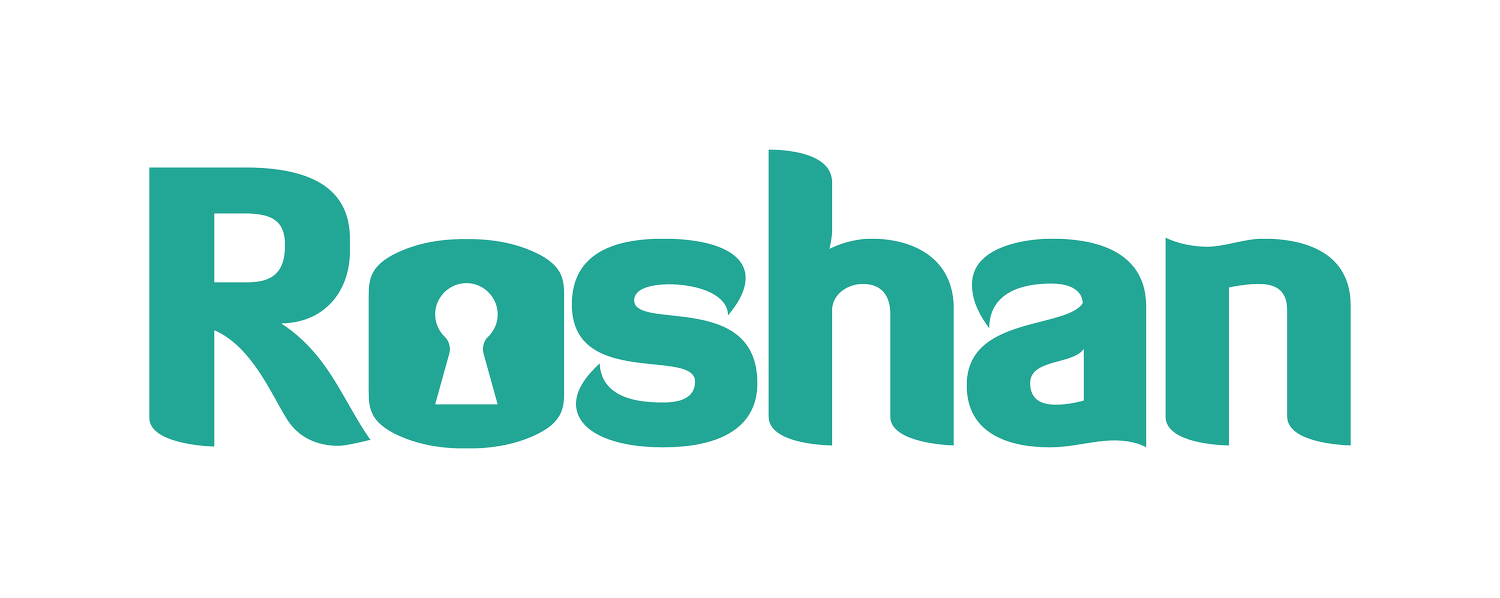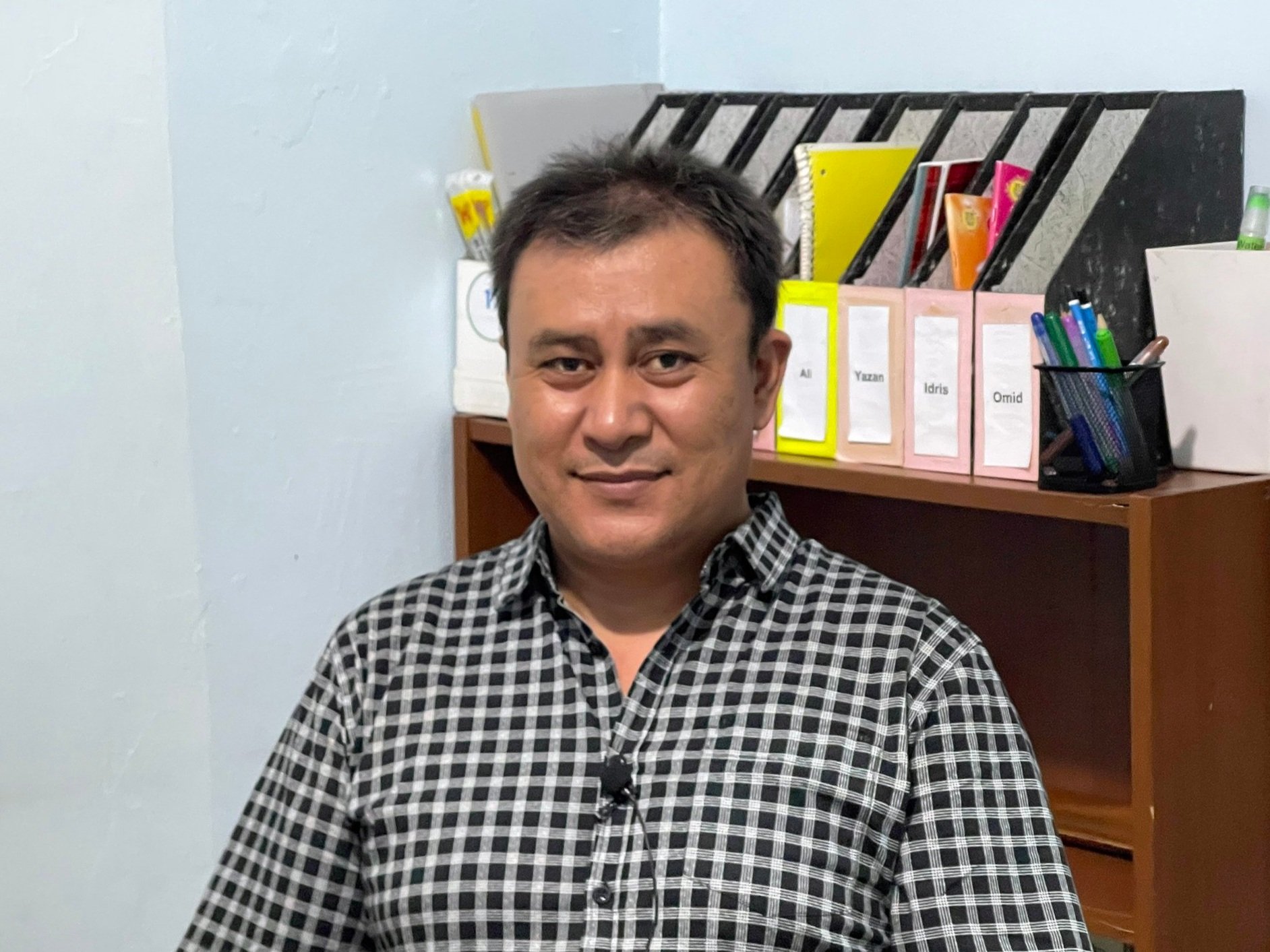A Decade to Remember: Esmat’s Story
Story writer: Sheri Lohardjo | Videographer: Sajjad Alizada | Video editor: Caitlin Howe
Many years ago, Ismatullah Ahmadi was living in his hometown of Jaghori in the province of Ghazni, Afghanistan. There, he enjoyed a comfortable existence as a successful entrepreneur. Known to everyone as Esmat, he owned and managed a shoe factory, where he employed anywhere between 80 to 100 people. “I had a perfect life in my hometown,” he says. “I was doing my business. I was never thinking that one day I may leave all those opportunities [and] what I had.” He never expected how unsafe his hometown would become.
Dangerous circumstances meant that Esmat had no choice but to escape Afghanistan. “I just left everything behind. The security situation was very bad. I couldn’t do anything, just left everything.” Leaving meant getting separated from his family, but he made the difficult decision in order to secure the future of his children.
Like many others displaced at the time, Esmat’s plan was to get to Australia via Indonesia, and from Australia, to bring his wife and children over. And, like many others who also embarked on a similar journey, the door was unexpectedly shut in his face: upon his arrival in Indonesia, the Australian Government had stopped accepting refugees. Esmat still had hope. Although his path had been disrupted, refugees were getting resettled within 1 to 2 years. It would only be a matter of time, he thought.
It has now been nearly 10 years and 6 months. Esmat, now 47, is still in Indonesia waiting for his process to move forward. His life looks very different today: much of it revolves around Roshan, where he began as an English student in 2015. “That was a lucky day that I could join Roshan,” Esmat says. He had been searching for English classes in Jakarta, but his options were limited.
Back then, the only available space was in the front yard. “It was a small area, and we were 13 students. We had a teacher – teacher Sarah. It was very hot every day. We learned in the hot area outside. When there was rain, [there was] no class, because there was no roof,” Esmat recalls. “And I never forgot that.”
Two months later, there were elections to become part of the Roshan leadership team. Esmat had developed a desire to help his fellow refugees. He signed up and was chosen to become the Community Relations Manager, a voluntary role as refugees are not permitted to work in Indonesia. There were many challenges at the start. The center was located in an old building with very limited space. The hall was partitioned into multiple rooms, and the different classes could hear each other. “It was very difficult to manage. And the funny thing: the office was in the same hall [...] we could hear every single word from the teacher [and] from the students,” Esmat reminisces with a smile. On top of the space issue, Roshan also had very few students at the time. They had to try to recruit students to enroll them.
This quickly ceased to be a problem as more and more refugees were arriving in Indonesia, and students were enrolling at Roshan in increasing numbers. Esmat fondly looks back on the parties and gatherings they had in those days. The community would bring food and enjoy friendly conversation while music played in the background. Those events were important, he says – not only for building a stronger sense of community, but also to help new arrivals feel a sense of belonging in a strange new country.
Esmat has now served in his role at Roshan for over 8 years. With his dependable nature and steady temperament, he has come to play an essential role at the learning center. As Community Relations Manager, Esmat handles communications with students and their families. It can be difficult, he says, because the Roshan community is incredibly diverse and so there are linguistic barriers. But getting to interact with people from different backgrounds and nationalities is his favorite part of the role.
In addition, Esmat frequently lends a hand to help when students are experiencing problems. Members of the community face difficulties from being in Indonesia for so long, he says. “They get depressed and not motivated anymore.” When parents in particular are faced with mental health problems, it frequently affects their children, mostly resulting in absences and lower performance in class. Esmat meets with those families to find out how Roshan can help. He listens to them as they share their troubles, and then tries to work with them to find a solution that will encourage the students to improve their attendance and learn more effectively. “We always try to be with them, try to encourage them, to ask them to help their children,” Esmat explains. “Somehow we always try to help families [...] What we can do, we always stay with them together and try to support them, try to be with them, that’s what we can do.”
As Roshan’s longest serving volunteer, Esmat has witnessed many things: he has seen every iteration of the learning center, watched profound success stories unfold, and participated in many important moments in our history. His favorite moments are graduation events for the GED and Elite Open School programs. “It is important for students and their future,” he says. “When they move to the third country, they’ll [be] ready to enter the college or university.” Esmat reminds us that while these events are profound moments for the graduates, they are also meaningful for the teachers and staff who helped the students along the way. For him, it is fulfilling and exciting to see the outcome of the students’ hard work as they earn their diplomas and qualifications.
Then there are the small, yet poignant moments, too. Esmat has many stories from his time at Roshan, but one in particular has stayed with him. “A few years ago, a mother came to Roshan to register [her] children’s name in enrollment,” he says. The mother had arrived alone and did not have the information ready to fill out the registration forms. Esmat asked her to return the next day with her children. On the second day, she arrived at the center, still without her children and thus still unable to enroll them. “The third day she came, and again she came alone. And I asked, ‘Where [are] your children? Why didn’t you bring them, or their ID card at least?’ And she said they were on their way.” That was when he realized that her children were not yet in Indonesia, but still en route from their home country! Esmat says, “They were not even in Indonesia, but the mother tried to provide a place to study for her children.” This experience made him realize how far a mother would go in order to secure her children’s future, something that concerns many refugee families.
Moments like these have left a profound mark on Esmat, and being part of the Roshan team has allowed him to experience meaningful collaboration while serving a community whose members are also waiting for resettlement. “The heart of Roshan lies in its incredible team of volunteers and staff, who exemplify the values of kindness, friendliness, and supportiveness,” he says. “It's not just about completing individual assignments. It's about everyone working together to ensure the success of the entire team.” Esmat has many hopes for Roshan, but especially for its younger students: “Stay connected with the community, get the benefits of education programs for your brighter future, and never give up.”
Many members of our community have come to depend on Esmat’s dedication and wisdom, and certainly Roshan would not be where it is today without him. "Esmat's humble, patient leadership at Roshan has helped us build a culture that always aims to bring people together, work through difficulties, and respect the dignity of all stakeholders - especially students and families. His presence has been a huge gift and comfort to our community, and we are deeply indebted to him for the time he has shared so generously with all of us,” says Joy Lee, who formerly served as YICF’s Executive Director and has worked with Esmat for many years.
Ten years ago, when Esmat left Afghanistan, he only had the future of his family in mind. Since then he has helped hundreds of other refugee families in similar situations. Throughout his years of service at Roshan, he has remained connected with his own family through daily video calls, saw his children grow up from a distance, and supported them to the best of his ability through difficult circumstances. Esmat’s family was recently resettled to the United States, and he eagerly looks forward to being reunited with them after a decade of separation.
Next year, Roshan Learning Center will be celebrating its tenth anniversary: a decade of changing lives and inspiring hope among refugees in Indonesia.
As we look to 2024, we are celebrating that the Roshan story has grown deeper, wider, and richer. In 2014, we began with the simple goal of providing a safe space for refugee children to learn and play. Now, the impact of our work is more tangible than ever.
Help us ensure this good work that enriches lives through education and community.




